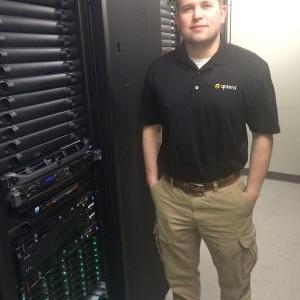What factors led you to pursue a career in IT?
I'd had a lot of success with computers before college, having had the benefit of being exposed to computers since the first grade. It felt like a natural fit and it catered to my desire to understand how things work. I had actually spent a semester in computer engineering and then computer science before finally realizing that I needed more practicality and variety in my career. CIT was an easy choice at that point.
Did you participate in internships?
I had the opportunity to intern every summer throughout my college career at Purdue. I did basic Windows and systems administration at an automotive plant near my hometown, which was where I really got a start in systems automation and monitoring because there were serious gaps in that environment. The next summer I had the awesome opportunity to go to Bloomington, IL and intern with the Infrastructure Automation team at State Farm. State Farm had a very mature internship program that not only gave you practical experience on your team but had programs to develop your business skills and acumen. Everyone there was about doing their jobs well and they were totally behind furthering the company and supporting their policy holders. My last internship was right at Purdue with the Rosen Center for Advanced Computing (RCAC) where I learned most of what I know today about critical infrastructure (power and cooling), UNIX, and HPC. If you're a student looking to get real experience throughout the year, look them up some time.
What do you know about your program of study now that you wish someone had told you when you were choosing a major?
I wish that I would have at least known how much I would need to rely on my non-technical skills to succeed in the program. Being a successful CIT student was at most 50% technical skills and at least as much about interpersonal skills, cooperative and leadership skills, and time management.
What advice would you give to current or prospective CIT students?
Embrace the challenges and being uncomfortable at times. If CIT presents you with a topic -- an entire class, a lecture, a lab -- and you don't leverage that opportunity to add it to your knowledge, you're missing out and might just find out later that you could have used that knowledge or skill. The ability to understand the interactivity of discrete physical components of computing and telecommunications systems gives me an advantage and a level of expertise that my coworkers may not have, especially when troubleshooting.

